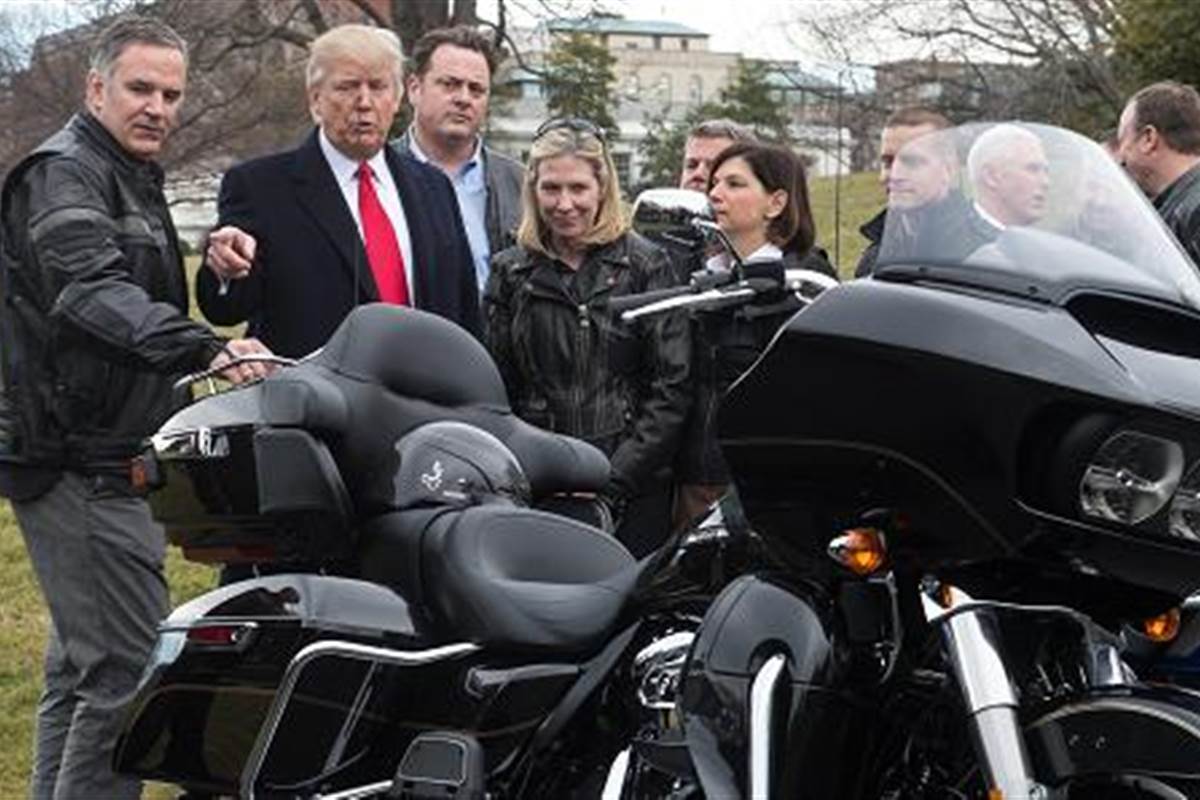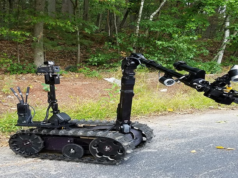
President Donald Trump met on Thursday afternoon with executives from Harley-Davidson, a company that has long proudly manufactured its heavyweight motorcycles in factories across the United States.
But Harley-Davidson has outsourced a different type of work — information technology — that has thrust the company into the debate over high-skilled immigration.
Harley-Davidson signed an agreement with Indian tech staffing giant Infosys in 2012 to take over parts of its IT department. To handle the project, Infosys opened a new facility in Milwaukee, where Harley-Davidson is based. About 125 positions were eliminated at Harley-Davidson in the process. And workers who applied for a job at the Infosys facility claimed they were discriminated against in favor of South Asian employees.
According to the complaint, Infosys relied heavily on workers with H-1B visas, which allow U.S. companies to hire from abroad in highly skilled fields in which there are a shortage of American workers. But the suit argues that there should have been plenty of qualified workers available, such as the ones who just lost their jobs at Harley-Davidson.
Related: Harley-Davidson to Pay $12 Million Fine Over Emissions
Attorneys for the workers are seeking class certification. Infosys declined to comment.
Richard Strong, director of IT at Harley-Davidson, said the company strongly encouraged Infosys to hire its former employees. The changes were part of a broader reorganization of its technology department, he said, and the company added a net total of 135 workers in even more highly skilled positions.
“Everybody had the opportunity to reapply for those positions,” Strong said. “It was never a cost-cutting exercise. It was more of a realignment and retooling.”
The suit underscores the potentially wide reach of Trump’s proposals to overhaul the nation’s immigration system. Though H-1B visas have long been considered essential in Silicon Valley — Facebook Chief Executive Mark Zuckerberg is one of the program’s most vocal supporters — the program’s ripple effects also extend to America’s heartland.
It is unclear if immigration will come up during Trump’s meeting with Harley-Davidson on Thursday afternoon. But his administration has repeatedly criticized H-1B visas as undercutting U.S. workers. On Monday, White House press secretary Sean Spicer suggested that the H-1B program could be the focus of a future executive order. Trump railed against the practice on the campaign trail, at one point calling it a “cheap labor program.”
Harley-Davidson executives did not meet with Trump alone. The meeting occurred in the Roosevelt Room and included union leaders — who have been staunch supporters of tightening the H-1B program.







